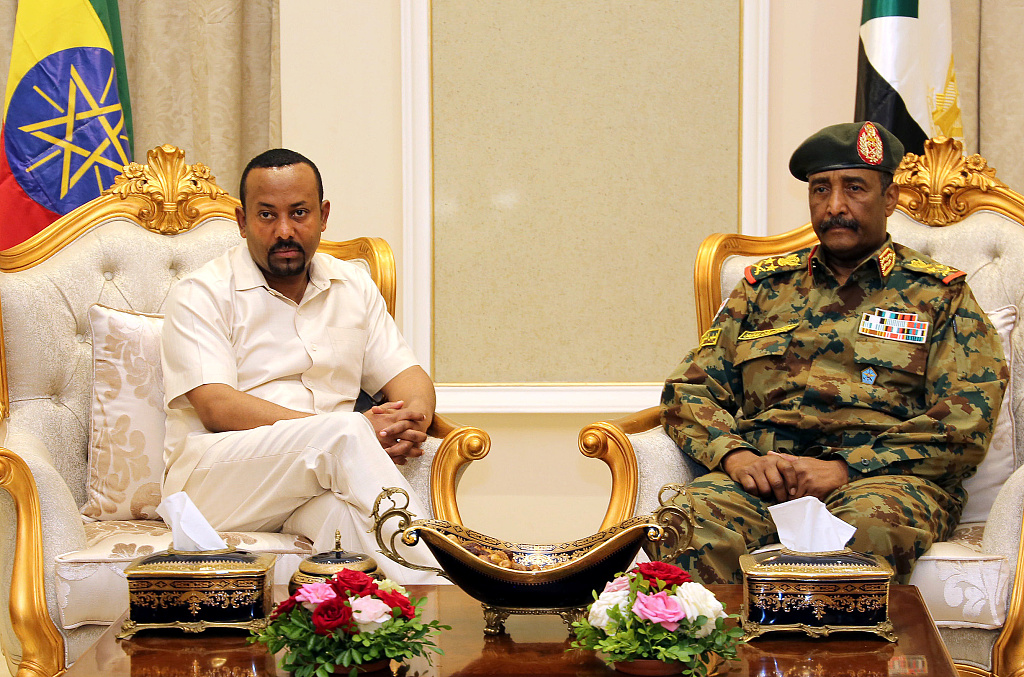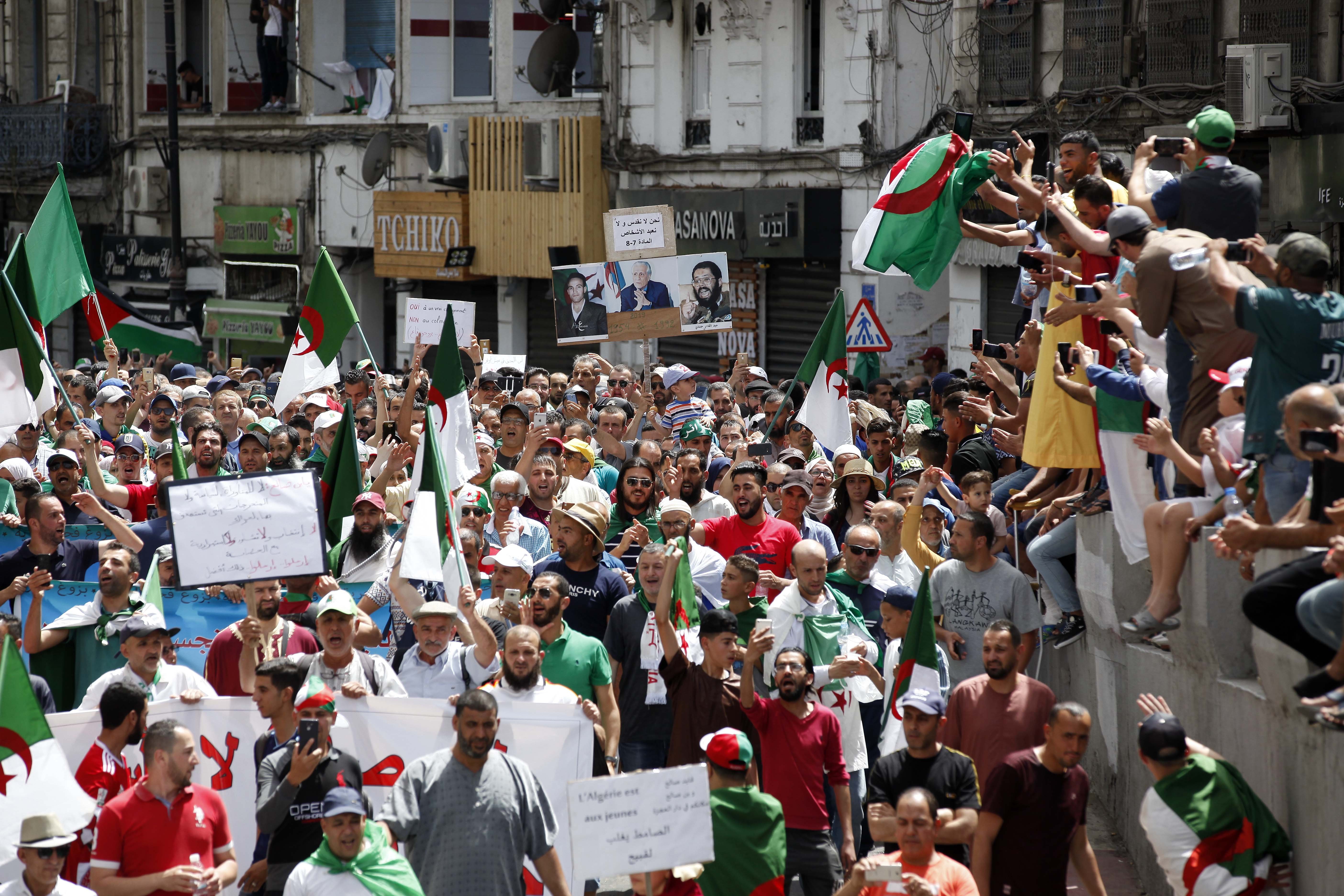Calamitous uncertainty clouds end game in Sudan and Algeria
- By Earl Bousquet
 0 Comment(s)
0 Comment(s) Print
Print E-mail China.org.cn, June 14, 2019
E-mail China.org.cn, June 14, 2019

Unrest in Sudan and Algeria has accelerated alarmingly, each in different ways, but both offering no end in sight to the unpredictability in the ongoing standoffs between increasingly unpopular transitional regimes with powerful military backing and protesters in two of the largest and populous North African strategic states.
The political crisis is paralyzing Algeria, affecting 35 million people across 2.3 million square kilometers and Sudan, with 40 million citizens spread over 2.5 million square kilometers.
Promised elections have proved to be an off-and-on-again phenomenon in Sudan, where the Transitional Military Council (TMC) has come under international condemnation following the June 3 killings of scores of people after two days of clashes in Khartoum.
The African Union (AU) has suspended Sudan's membership and there are calls for independent investigations into the killings, with the TMC and the protest leaders differing on the number of persons killed.
Talks between the former and a broad opposition coalition called Voices for Freedom and Change took place over several weeks following the April overthrow of President Omar Hassan al-Bashir. However, an overdose of mutual mistrust has assured continued rejection of each side's proposals.
Initial talks achieved agreement on a path forward; however, then came disagreements on the composition and leadership of the agreed supervisory council.
In the immediate aftermath of the Khartoum killings, the TMC first said the talks were off, but announced on June 4 that "new elections with international supervision" would be called "in nine months." It then suddenly called for resumption of talks.
However, the protest leaders, by this time clearly mistrustful of the increasingly impatient TMC, opted to continue calling for civil disobedience, and openly inviting external intervention.
While loud in condemnation, the international community is clearly divided on the way forward:
• The AU, Arab League, European Union (EU) and United Nations (UN) largely stayed aloof while Saudi Arabia and the United Arab Emirates (UAE) sought early engagement with the TMC, pumping US$3 billion in aid into Sudan;
• Washington is appealing to Riyadh to exercise restricting influence over the TMC, while the three African member-states on the UN Security Council are insisting that the AU should be the lead body in the search for a Sudan solution. Meanwhile, Russia welcomes calls for an investigation into the deaths, but is squarely against foreign intervention.
• The divided Sudanese opposition continues to differ on whether to accept the TMC's latest election plans, while the latter seems in no mood to hand power over to civilians it does not trust;
• Those speaking for the protesters insist that, before talks can resume, the army must first accept responsibility for the June 3 killings, release all political prisoners, and agree to return to barracks.

• The square-off continues, even after Ethiopia's Prime Minister Abiy Ahmed visited Khartoum to broker resumption of peace talks between the warring sides.
The future doesn't look better in Algeria either. The Constitutional Court canceled the July 4 presidential elections due to insufficient interest (only two candidates registered), while the Army, which forced the departure of unpopular President Abdelaziz Bouteflika, is not bending to demands to also depose the transitional regime. The distance between the transitional administration and the protesters is thus widening.
The army is under increasing pressure to appoint a new transitional administration, but is insisting that constitutionality must be maintained and national normalcy must first be restored.
In both cases, protesters led by almost invisible and largely overseas-based personalities are lined up against powerful armies that have been part of the institutional life of each country for decades.
However, based on history, the present was also largely predictable, and much could have been avoided, if only the opposing sides had been more realistic in their demands and expectations.
Protesters have genuine grievances in both countries and public attitudes to the respective armies and transitional authorities have also hardened over time. Armies allied to power for decades are now fully in charge in each country, but protest organizers strongly reject their conditional insistence on returns to normalcy before elections.
The protest organizers also seem equally determined not to participate in elections organized by the transitional bodies.

It's too early to predict what the end game will be in either Algeria or Sudan. However, what is without doubt is that, notwithstanding the welcome intervention of various outside entities, nothing on the horizon, as yet, offers anything to inspire hope about the immediate future of two major African states in the middle of a transition from chaos and calamity to even more calamitous uncertainty.
Earl Bousquet is a contributor to china.org.cn, editor-at-large of The Diplomatic Courier and author of an online regional newspaper column entitled Chronicles of a Chronic Caribbean Chronicler.
Opinion articles reflect the views of their authors, not necessarily those of China.org.cn.
If you would like to contribute, please contact us at opinion@china.org.cn.






Go to Forum >>0 Comment(s)